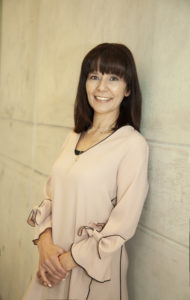Seugnette van Wyngaard, Head of 1st for Women.

In June, the women of South Africa were reminded, once again, that there’s a war being raged on their bodies and their safety is under constant threat. According to statistics released by the SAPS, over a three-month period (January to March 2022), murder, attempted murder and the assault of women all recorded double-digit increases and over 10,800 rape cases were reported.
The Minister for Women, Youth and Persons with Disabilities, Maite Nkoana-Mashabane, expressed outrage and concern and noted that coordinated responses across all spheres of society needed to be strengthened.
“Until these coordinated responses materialise, we are confronted with brutal statistics and horrific video footage showcasing the reality that many women are forced to endure on a daily basis, with little or no consequences,” says Seugnette van Wyngaard, Head of 1st for Women.
It’s reassuring to note that 1st for Women is reporting green shoots in its Diepsloot-based preventative and response programme that addresses the root cause of the abuse epidemic – patriarchy.
“Women abuse in South Africa is a burgeoning and complex issue that requires a multifaceted approach to address the underlying attitudes, beliefs, practices and systems that condone, justify or excuse gender inequality. Through our research we found that male superiority and a culture of violence which manifests itself in the form of patriarchy, control, sexual entitlement and unhealthy conflict resolution skills are determining factors towards women abuse,” says van Wyngaard.
To address this, 1st for Women launched a school-based learning programme in Diepsloot for children aged three to 18 which is being implemented by Think Equal in collaboration with Ntataise Trust and the Regional Psychosocial Support Initiative. The programme also includes a comprehensive community-based support programme for survivors of abuse (from trauma to prosecution) which is being implemented by Lawyers Against Abuse.
Since 2020, the 1st for Women’s programme has helped 5 883 women access GBV-related support services, provided 360 GBV survivors with post-violence clinical care and ensured that 137 people were charged with GBV offences.
A new addition to the programme is self-defence workshops for girls, run by non-profit, Action Breaks Silence. Over the past year, 2 339 children have been equipped to better recognise indications of potentially dangerous behaviours by perpetrators and encourage them to own their space and bodies with confidence.
“Participants have noted that following the workshop they feel less fearful, more empowered and more capable of defending themselves with tools they could immediately put into action,” says van Wyngaard.
The self-defence programme is already making a difference and, according to the head of Reshomile Primary School’s Life Skills and Life Orientation department: “Usually, we’d see a number of cases of bullying or cases of learners waiting for others outside so that [they] can fight. However, since the programme started, our incident report book is empty. I believe this programme is a success.”
“Currently, the safety of women is a footnote. We are committed to fighting this scourge so that it becomes part of the agenda,” concludes van Wyngaard.

